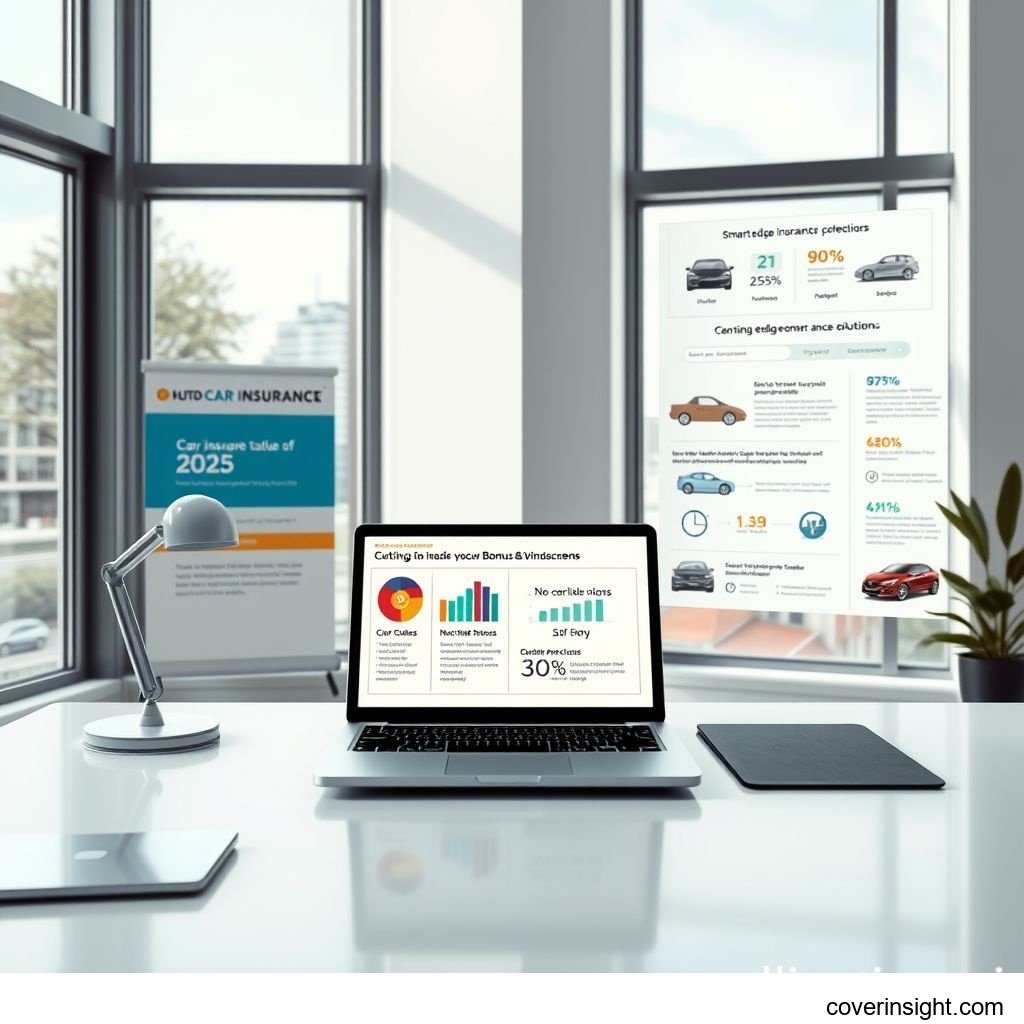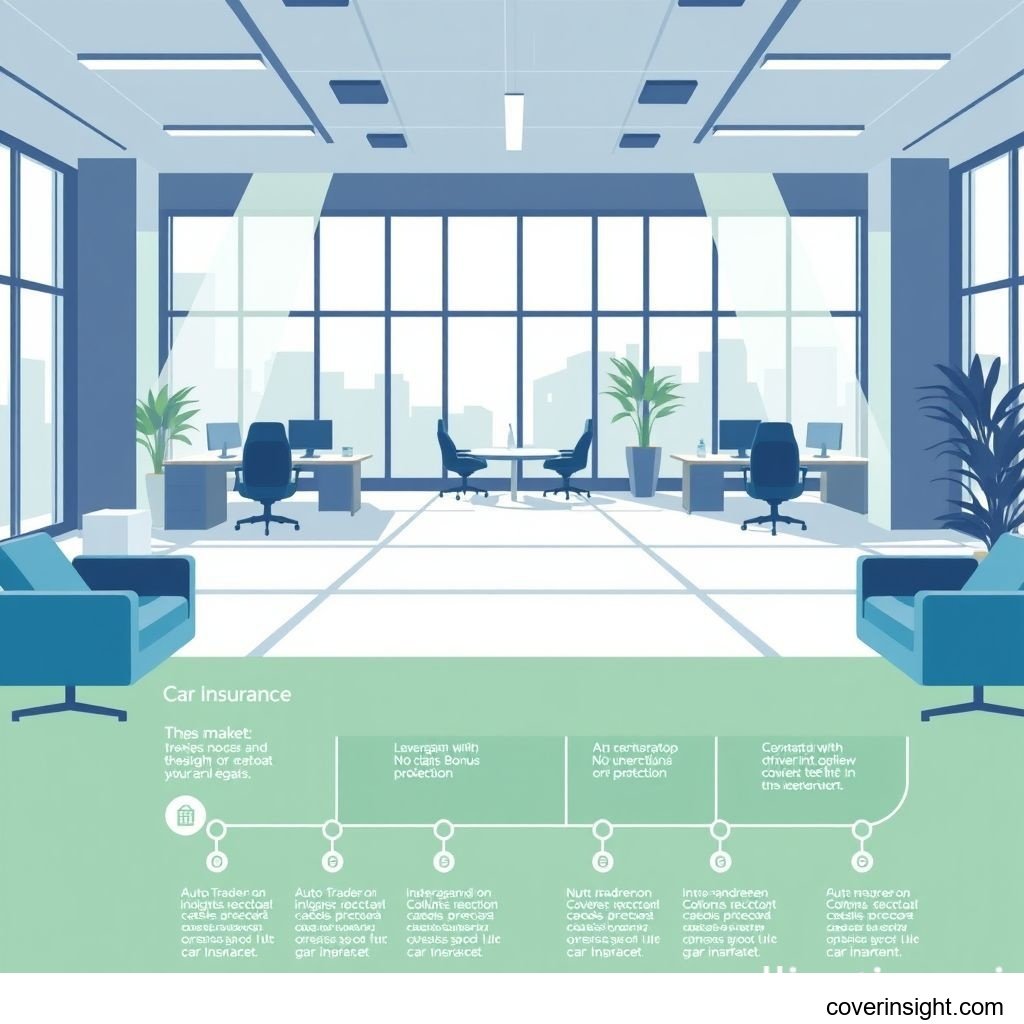Auto Trader Car Insurance GB: Protect Your No Claims Bonus 2025
Introduction
As we navigate 2025, securing reliable car insurance remains a non-negotiable aspect of vehicle ownership in Great Britain. More than just a legal requirement, the right policy provides essential financial protection against unforeseen incidents on the road. From minor scrapes to major accidents, adequate car insurance safeguards you, your vehicle, and other road users. Auto Trader, a trusted name in the automotive sector, understands the complexities of the insurance market. This comprehensive guide aims to demystify car insurance for GB drivers, highlighting key considerations, coverage options, and crucial ways to protect valuable assets like your No Claims Bonus. Understanding your policy ensures peace of mind, allowing you to focus on the journey ahead.
(Image alt text: A modern car driving safely on a GB road, representing reliable car insurance coverage.)
Understanding Your Car Insurance Coverage
Navigating the world of car insurance policies can feel overwhelming, but understanding the core components is vital. In GB, most policies fall into one of three main categories, each offering varying levels of protection.
What’s Included in a Standard Policy
A standard car insurance policy in Great Britain typically includes cover for several scenarios, depending on the type you choose:
-
Third-Party Only (TPO): This is the minimum legal requirement. It covers damage or injury you cause to other people, their vehicles, or property. It does not cover damage to your own vehicle.
-
Third-Party, Fire & Theft (TPFT): Building on TPO, this policy adds protection if your car is stolen or catches fire. Like TPO, it doesn't cover repair costs for damage to your own car in an accident you cause.
-
Comprehensive: This is the highest level of car insurance coverage. It includes everything from TPO and TPFT, plus cover for damage to your own vehicle, even if the accident was your fault. It often includes cover for personal injury, medical expenses, and sometimes a courtesy car.
Beyond the core levels, policies may also include:
-
Legal Liability: Cover for legal costs if you are sued by another party.
-
Vehicle Damage: Repairs or replacement for your vehicle.
-
Personal Accident Cover: Compensation for death or serious injury to the driver or passengers.
-
Medical Expenses: Costs for immediate medical treatment following an accident.
Common Exclusions to Be Aware Of
While a robust car insurance policy offers extensive protection, it’s equally important to understand what it doesn't cover. Common exclusions can include:
-
Unauthorised Drivers: If someone not named on your policy, or not covered by "driving other cars" (DOC) extension, drives your vehicle and has an accident.
-
Drink or Drug Driving: Incidents occurring while the driver is under the influence.
-
Racing or Track Use: Participation in organised racing events, rallies, or driving on a track.
-
Unreported Modifications: Any alterations made to your vehicle that haven't been declared to and approved by your insurer.
-
Negligence: Damage resulting from gross negligence, such as leaving your car unsecured with the keys in the ignition.
-
Commercial Use: If your policy is for personal use but you use the vehicle for business without appropriate "business use" cover.
-
Wear and Tear: Routine maintenance or damage from general wear and tear, rather than an insurable event.
Always read your policy documents carefully to ensure you're fully aware of any limitations or conditions that could affect a claim.
Protecting Your No Claims Bonus (NCB) with Car Insurance
Your No Claims Bonus (NCB), sometimes called a No Claims Discount (NCD), is one of the most valuable aspects of your car insurance policy. It’s a discount offered by insurers for each year you drive without making a claim. The more consecutive years you drive claim-free, the larger your discount becomes, significantly reducing your annual premium.
The Value of a No Claims Bonus
An NCB can reduce your car insurance premium by a substantial amount, often up to 80% or more for five years or more of claim-free driving. For instance, a driver with 9 years of NCB could pay significantly less for comprehensive car insurance than a new driver or someone with a recent claim. It acts as a reward for safe driving and a strong incentive to maintain a good driving record. Accumulating NCB takes time and consistent safe driving, making its protection paramount for long-term savings on your car insurance costs.
Understanding NCB Protection
NCB protection is an optional add-on that allows you to make one or more claims without losing your accumulated No Claims Bonus. While it means paying a slightly higher premium upfront, it can be a worthwhile investment for peace of mind, especially for drivers with many years of NCB.
Here’s how NCB protection typically works:
-
Eligibility: You usually need a minimum number of claim-free years (e.g., 4 or 5 years) to be eligible for NCB protection.
-
Claim Allowance: Most policies allow for one or two "fault" claims within a specified period (e.g., three or five years) without affecting your NCB.
-
Cost: Adding NCB protection increases your premium, but this increase is often less than the discount you would lose if you had to make a claim without it.
-
Benefits:
-
Financial Security: Protects your substantial discount even after an incident.
-
Peace of Mind: Reduces worry about losing your hard-earned bonus for minor incidents.
-
Long-Term Savings: Despite the initial extra cost, it can lead to greater savings over time if you do need to claim.
-
It's crucial to remember that while NCB protection saves your discount, the overall premium might still increase after a claim due to the incident being recorded on your insurance history. For more information on UK financial regulations affecting insurance, consult the Financial Conduct Authority.
Exploring Specialist Car Insurance Cover Options
Beyond standard comprehensive car insurance, there are numerous add-ons and specialised policies designed to provide tailored protection and potential savings. Auto Trader encourages drivers to explore these options to perfectly match their individual needs.
Enhancing Your Policy with Windscreen Cover Options
Damage to your windscreen is a common occurrence, ranging from small chips to significant cracks. Windscreen cover options are a valuable addition to many car insurance policies, typically included with comprehensive cover or available as an optional extra for third-party policies.
When considering windscreen cover options, look for:
-
Chip Repair vs. Full Replacement: Most policies will cover minor chip repairs without affecting your excess or NCB. Full windscreen replacements usually require you to pay an excess, which is often lower than your standard policy excess.
-
Impact on NCB: Often, windscreen claims, especially for repairs, do not impact your No Claims Bonus. However, check your policy as this can vary between insurers.
-
Approved Repairers: Insurers usually have a network of approved repairers. Using these can simplify the process and ensure quality.
-
Sunroof/Panoramic Roof Cover: Some windscreen cover options extend to other glass elements of your vehicle, such as sunroofs or panoramic roofs, though this is not always standard.
Having robust windscreen cover options can save you significant out-of-pocket expenses and prevent small chips from becoming larger, more costly problems.
Maximising Savings with Multi-Car Discounts
For households with multiple vehicles, multi-car discounts offer a convenient and cost-effective way to manage car insurance. Instead of separate policies for each vehicle, a single multi-car policy can cover all cars at one address, often resulting in a notable reduction in overall premiums.
The benefits of multi-car discounts include:
-
Simplified Management: One renewal date, one set of policy documents, and one point of contact for all your vehicles.
-
Potential Savings: Insurers often provide discounts for insuring multiple vehicles with them, recognising the increased loyalty.
-
Consolidated NCB: While each driver typically maintains their own NCB, the policy often allows you to apply different levels of NCB to each vehicle.
-
Flexible Cover: Policies can be tailored, allowing different levels of cover (e.g., comprehensive for one car, TPFT for another) and different drivers for each vehicle.
Exploring multi-car discounts can streamline your insurance needs and offer considerable financial benefits for families or individuals with more than one car.
Other Optional Add-ons
Beyond the core policy, a range of optional add-ons can customise your car insurance to suit your specific needs:
-
Breakdown Cover: Provides assistance if your vehicle breaks down, from roadside repair to recovery.
-
Courtesy Car Cover: Ensures you have access to a replacement vehicle while yours is being repaired after an incident.
-
Legal Expenses Cover: Covers legal fees if you need to pursue compensation from an at-fault driver or defend yourself against a claim.
-
Key Cover: Protection against the cost of replacing lost or stolen car keys.
-
Personal Belongings Cover: Compensation for personal items stolen from or damaged in your vehicle.
These add-ons enhance your overall protection, providing extra peace of mind for different scenarios.
Analysing Your Car Insurance Costs
Understanding how car insurance premiums are calculated is key to finding an affordable yet comprehensive policy. Insurers use a wide array of factors to assess risk, which directly impacts the price you pay.
Key Factors Influencing Your Premium
Your car insurance premium is tailored to your individual risk profile. Here are the primary factors insurers consider:
-
Your Age and Experience: Younger, less experienced drivers typically face higher premiums due to statistical risk.
-
Your Location: Urban areas with higher traffic density or crime rates generally result in more expensive insurance than rural locations.
-
Your Vehicle Type: The make, model, engine size, value, security features, and repair costs of your car significantly influence the premium. High-performance or high-value cars are more expensive to insure.
-
Your Driving History: A clean driving record with no claims or convictions (e.g., speeding tickets) leads to lower premiums.
-
Annual Mileage: The more miles you drive, the higher your risk of an accident, leading to increased costs.
-
Occupation: Certain professions are deemed higher risk than others, which can affect your premium.
-
Excess: The amount you agree to pay towards a claim. A higher voluntary excess can reduce your premium.
-
Security Features: Alarms, immobilisers, and trackers can help reduce your premium by deterring theft.
Practical Tips for Saving on Car Insurance
While many factors are fixed, there are several proactive steps you can take to potentially lower your car insurance costs:
-
Compare Quotes Diligently: Use comparison websites, including Auto Trader's own platform, to get multiple quotes from various providers. Prices vary significantly.
-
Increase Your Voluntary Excess: Be cautious, but agreeing to pay a higher voluntary excess can reduce your premium. Ensure it's an amount you can comfortably afford.
-
Improve Car Security: Fitting an approved alarm, immobiliser, or tracking device can make your car less appealing to thieves and result in discounts.
-
Reduce Your Mileage: If you can, drive less. Lower annual mileage often leads to lower premiums.
-
Consider a "Black Box" Policy: Telematics insurance monitors your driving style. Safe drivers can be rewarded with lower premiums, especially beneficial for young drivers.
-
Pay Annually: If possible, pay your premium in one lump sum rather than monthly instalments, as insurers often charge extra for monthly payments.
-
Maintain a Clean Driving Record: Avoiding claims and driving convictions is the best long-term strategy for lower premiums and protecting your No Claims Bonus.
-
Bundle Policies: As mentioned earlier, multi-car discounts can save money if you insure more than one vehicle with the same provider.
By strategically reviewing these factors and implementing cost-saving measures, you can find more affordable car insurance without compromising on essential coverage.
Frequently Asked Questions (FAQs) About Car Insurance
Understanding the basics of car insurance is crucial for every GB driver. Here are answers to some of the most common questions.
How much does car insurance cost?
The cost of car insurance varies widely. There's no single answer, as premiums are highly individualised based on numerous factors like your age, driving history, location, car type, and chosen level of cover. Average comprehensive policies in GB can range from a few hundred pounds to well over a thousand pounds annually. Younger drivers or those with high-performance vehicles typically pay more. Comparison sites, like the one offered by Auto Trader, are the best way to get a personalised estimate.
What factors affect my premiums?
As discussed, several factors influence your car insurance premiums. These include:
-
Your age and driving experience.
-
Your location and where the car is parked.
-
The make, model, and engine size of your car.
-
Your driving history, including claims and convictions.
-
Your annual mileage.
-
Your occupation.
-
The level of excess you choose.
-
The security features of your vehicle.
Is car insurance mandatory in GB?
Yes, car insurance is a legal requirement for all drivers in Great Britain. At a minimum, you must have third-party only (TPO) cover. This ensures that if you cause an accident, the injured parties and their property are covered. Driving without valid insurance carries severe penalties. You can learn more about insurance industry standards from the Association of British Insurers.
How do I choose the best car insurance policy?
Choosing the best car insurance policy involves balancing cost with appropriate coverage. Here's how:
-
Assess Your Needs: Determine what level of cover (TPO, TPFT, Comprehensive) suits your car's value and your risk tolerance.
-
Compare Broadly: Use multiple comparison sites and check direct insurers, too. Don't just look at the price; compare what's included.
-
Read Reviews: Check customer service ratings and claim handling efficiency.
-
Check for Add-ons: See if essential extras like windscreen cover options or breakdown cover are included or if they need to be added.
-
Consider Your No Claims Bonus: Understand how claims might impact it and whether NCB protection is a worthwhile investment.
For broader insurance resources, visit Insurance Resources Global. For GB-specific insights, see GB Insurance Home.
What are the consequences of driving without car insurance?
Driving without valid car insurance in GB carries serious penalties:
-
Fixed Penalty: A fine of £300 and 6 penalty points on your licence.
-
Court Prosecution: If the case goes to court, you could face an unlimited fine and disqualification from driving.
-
Vehicle Seizure: Police have the power to seize and, in some cases, destroy uninsured vehicles.
-
Increased Future Premiums: Having an uninsured driving offence on your record will make it much harder and more expensive to get car insurance in the future.
-
Financial Liability: If you cause an accident while uninsured, you will be personally liable for all damages and injuries, which could amount to hundreds of thousands of pounds.
Protecting yourself with proper car insurance is not just a legal obligation; it's a vital financial safeguard for you and other road users.








Comments